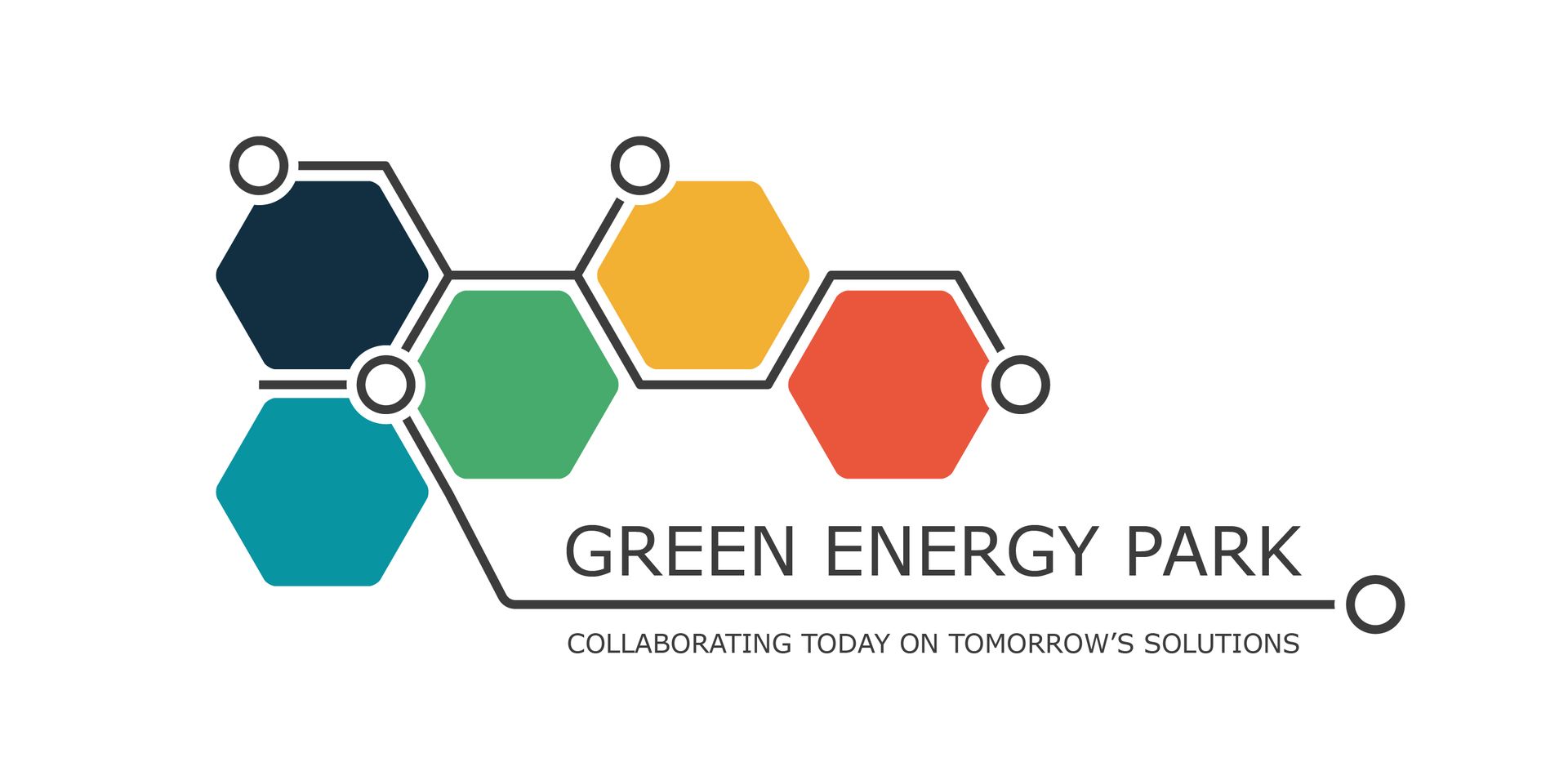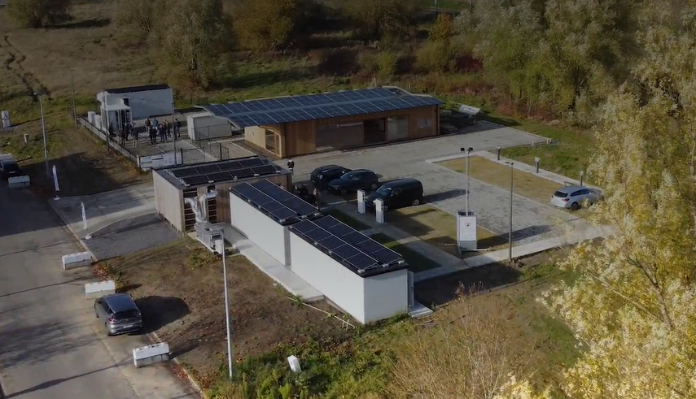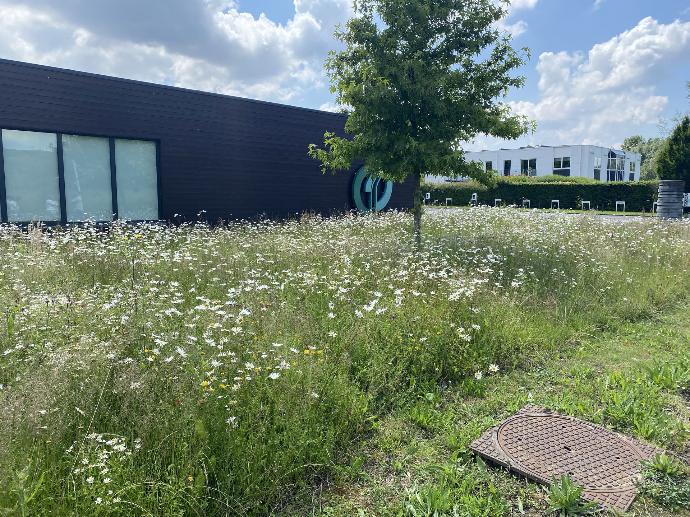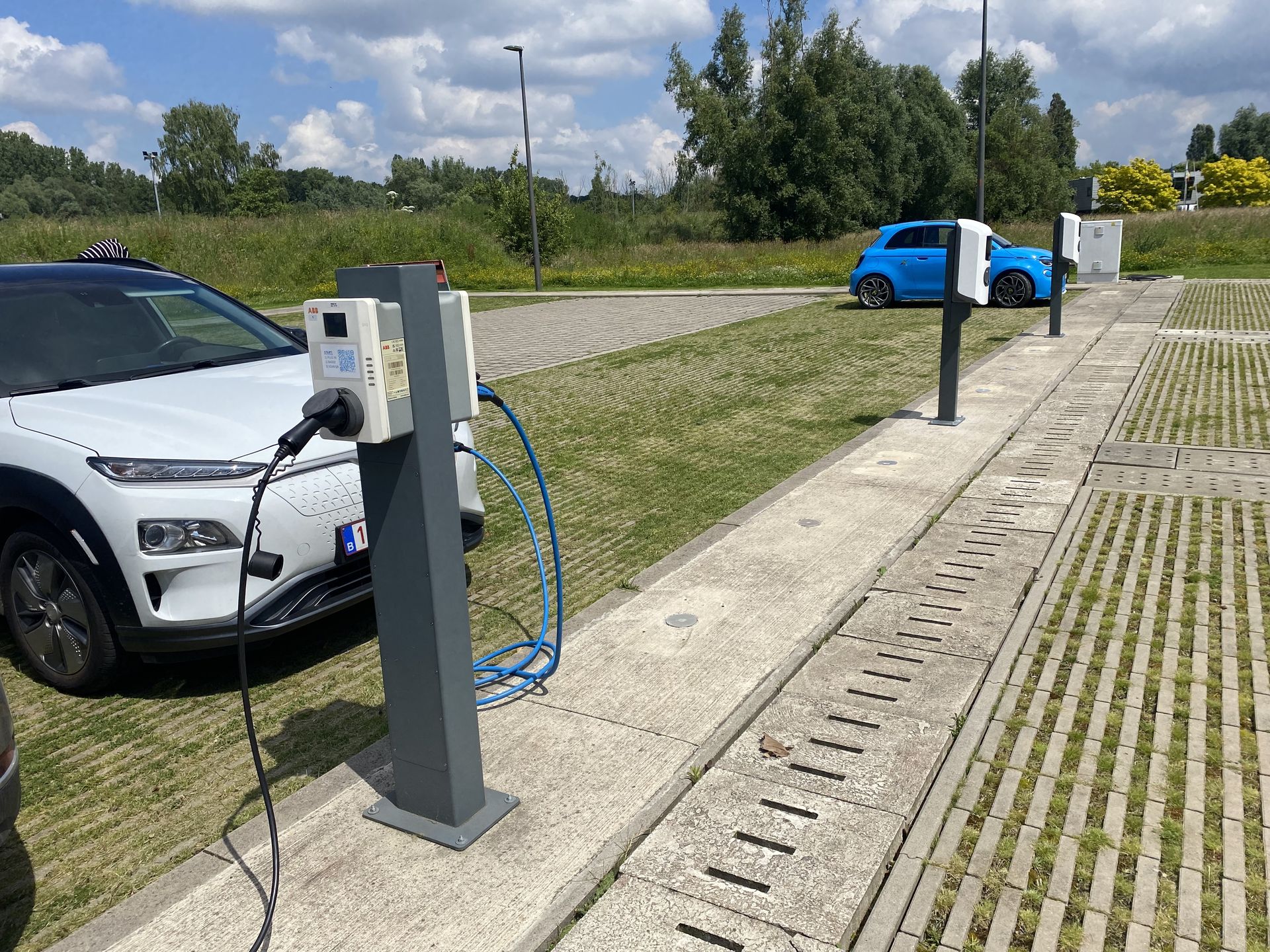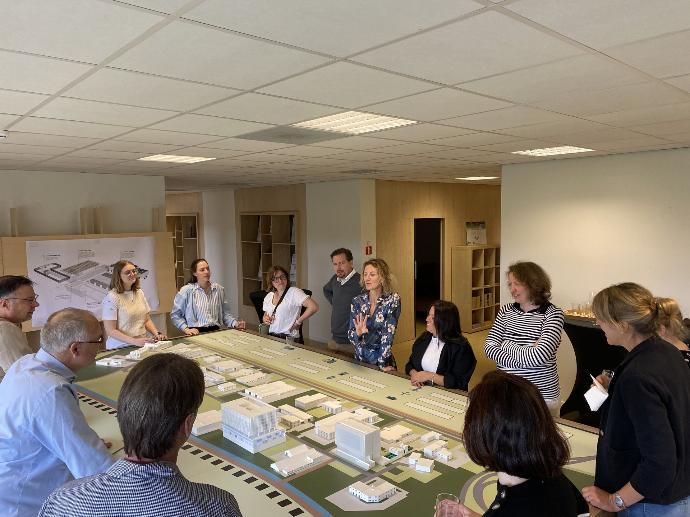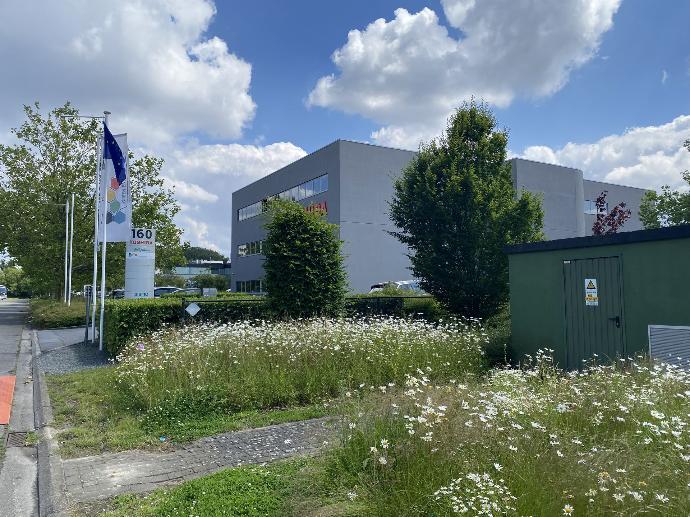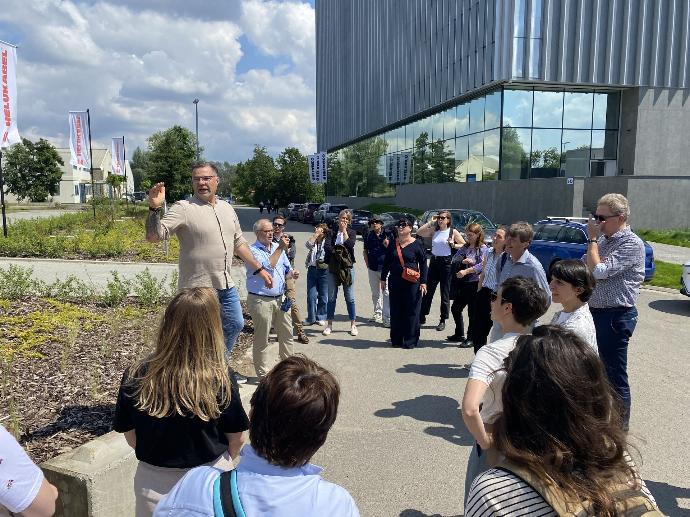In the municipality of Asse, heat stress has become a significant issue. The Climate Action Plan of Asse from September 2022 explains in this regard: Due to the high degree of paving, which is related to the “typical Flemish urbanization”, the municipality is affected by a very intense urban heat island. As a result, heat waves, which in the future will occur with an even higher frequency, become even more intense.
The
industrial and business park (IBP) Zellik was built during the 1970s and is
located in the municipality of Asse. For this particular IBP, the Climate
Action Plan of Asse specifically highlights that the heat stress threshold with
be exceeded by 2030. In order to meet this challenge, the industrial and
business park in Zellik will be modernized and turned into a state-of-the-art
research park. Potential measures that could be implemented include a landscape
of resilient trees and shrubs, walkways, that are unpaved and low-maintenance
at the same time, but also biodiversity-rich grassland, water drainage
infiltration as well as outside work and meeting spaces in nature.
Before these measures are implemented, an analysis will be conducted of the climate and economic risks in the industrial and business park Zellik, but also best practices gathered in residential environments (to see what could potentially be applied to the context in business parks). Building on this, an action plan shall be developed and a final list of measures compiled. Finally, after these steps are implemented, the economic, environmental and social impact of the adaptation measures will be evaluated. The conclusions will be used to feed future action plans, but also training modules, e.g. for local authorities or business park operators.
An important goal of the modernization that the industrial and business park Zellik is undergoing, is to overcome the exclusive, and still prevalent, view of profitability when IBPs are being designed. Green Energy Park wants to demonstrate how ecological functions can serve multiple benefits: in particular, that biodiversity can be enhanced in accordance with social benefits without endangering economic efficiency. As one example, Zellik wants to show that even the maintenance cost of adaptation measures in IBPs are economically feasible.
Further, the investments in Zellik aim at implementing adaptation measures in a strategic manner to mitigate heat stress and not simply “add[ing] any green where space is available”. By converting the IBP to function as an ecological corridor between two bordering Natura 2000 habitats, there will be a positive impact on residential areas, such as cooling down of temperatures at night when there are heat waves and contributing to a healthier sleep environment.
In total, more than 4,000 employees at the industrial and business park Zellik will profit after the modernization, not just from less heat stress, but also from improved air quality and thus general well-being. Further, the current enterprises that are situated in the industrial and business park Zellik will not just benefit from an improved image, that will help them bind employees and attract new staff, but also from a safer environment due to less sealed surfaces, that e.g. reduce the potential of harmful flooding.
With the ongoing modernization of the industrial and business park, the goal is also to create and use synergies regarding renewable energy. Just as the effects of climate change are not restricted to a geographical zone, the undertaken adaptation measures are meant to be transported beyond Green Energy Park: for instance in Flanders, where the network “Flux 50”, that is also an associated partner in IB-Green, is comprised of twelve IBP operators and local authorities.
Contact at Green Energy Park:
- Danny Dewit, danny.dewit@greenenergypark.be
- Ilse van den Borre, ilse.vandenborre@greenenergypark.be
